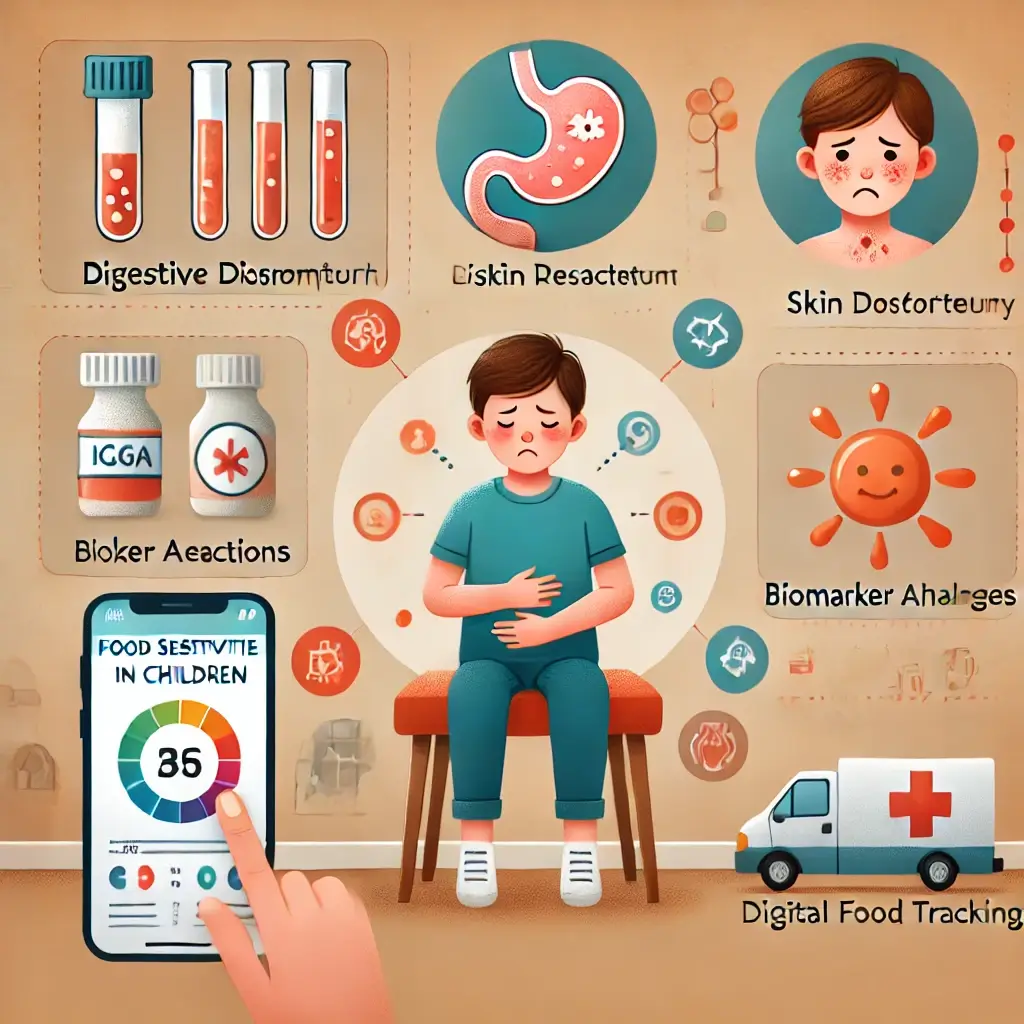Understanding Food Sensitivities in Children
Food sensitivities in children are a nuanced challenge that affects many families. Unlike allergies, which trigger an immediate immune response, food sensitivities often present as chronic, subtle symptoms, including digestive discomfort, skin issues, and even behavioral changes. These symptoms can disrupt a child’s quality of life, impacting their physical well-being, emotional stability, and academic performance.
Recent Research and Diagnostic Advances
Recent advancements in diagnostic tools have made it easier to distinguish food sensitivities from allergies and intolerances, enabling more precise and effective interventions. A landmark 2024 study highlighted that nearly 30% of children previously diagnosed with food allergies were dealing with sensitivities that required different management approaches (Journal of Pediatric Allergy and Immunology, 2024). These findings stress the importance of accurate testing and tailored care.
Identifying Key Symptoms and Patterns
Early identification of food sensitivities can significantly improve outcomes. Symptoms to watch for include digestive issues, skin reactions, behavioral changes, and sleep disturbances. Parents should document these symptoms in detail, noting the timing, frequency, and severity. Patterns, such as symptoms that occur after specific meals or at certain times of the day, can provide critical clues for healthcare providers.
Advanced Testing Methods
Advancements in diagnostic techniques have transformed the landscape of food sensitivity testing. The most effective methods include elimination diets, IgG antibody testing, oral food challenges, biomarker analysis, and digital food tracking tools. These methods offer varying levels of accuracy and precision in identifying food sensitivities.
Parental Action Steps
Parents play a crucial role in managing food sensitivities through consultation with specialists, preparation for testing, and implementation of dietary changes. They should keep detailed food diaries, work with dietitians, and leverage community resources and technology to manage their child’s condition effectively.
Latest Research Developments
Recent studies and trends are shaping how families and healthcare providers address food sensitivities. A 2024 study of over 3,000 children reported a 65% improvement in symptom management following structured testing protocols. Advances in precision medicine, including genetic testing and biomarker analysis, are paving the way for more tailored interventions.
Moving Forward
Managing food sensitivities in children is a multifaceted challenge that requires a combination of accurate diagnostics, proactive management, and ongoing support. The latest advancements in testing, including IgG antibody panels, oral food challenges, and biomarker analyses, are empowering families to make informed decisions about their child’s health.
Future Outlook
The future of pediatric care is bright, with ongoing research and technological innovations making it easier than ever for families to manage food sensitivities effectively. With the right approach, parents can ensure their child’s health and happiness for years to come.
Research Sources
Journal of Pediatric Allergy and Immunology (2024)
Clinical Testing Methods Review (2024)
Pediatric Gastroenterology Studies (2024)
Food Sensitivity Research Quarterly (2024)
Diagnostic Testing Outcomes Research (2024)

Dominic E. is a passionate filmmaker navigating the exciting intersection of art and science. By day, he delves into the complexities of the human body as a full-time medical writer, meticulously translating intricate medical concepts into accessible and engaging narratives. By night, he explores the boundless realm of cinematic storytelling, crafting narratives that evoke emotion and challenge perspectives. Film Student and Full-time Medical Writer for ContentVendor.com




